WASHINGTON — This week President Donald Trump’s tough talk on trade made news and roiled markets, but the political impacts are harder to characterize. A close look at the issue shows Trump’s role as “a tariff man” follows two of the main rules that have come to define his presidency: it is aimed squarely at his Republican base and it helps to redefine the GOP on an important issue.
A cursory, high-level look at the poll data on trade shows a rare area of agreement in 2018 America. Numbers from the Pew Research Center suggest that Americans love trade.
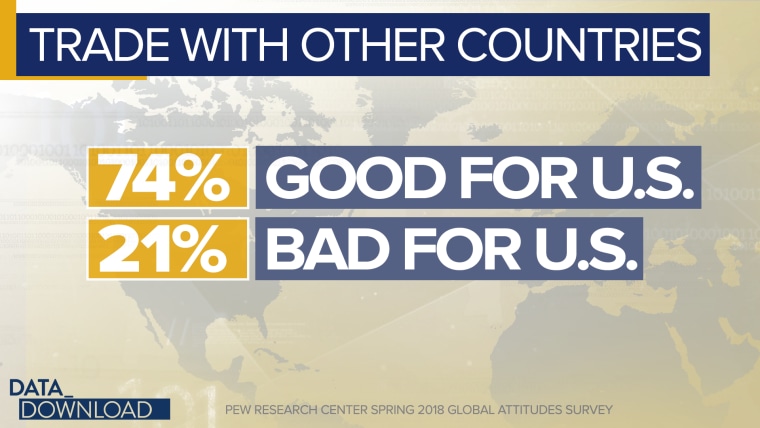
Nearly three-quarters of Americans say “trade with other countries” is a good thing for the United States. That kind of agreement is hard to find on any topic, particularly one that’s in the news as much as trade.
And more surprising, that solid level of support holds steadily across partisan lines.
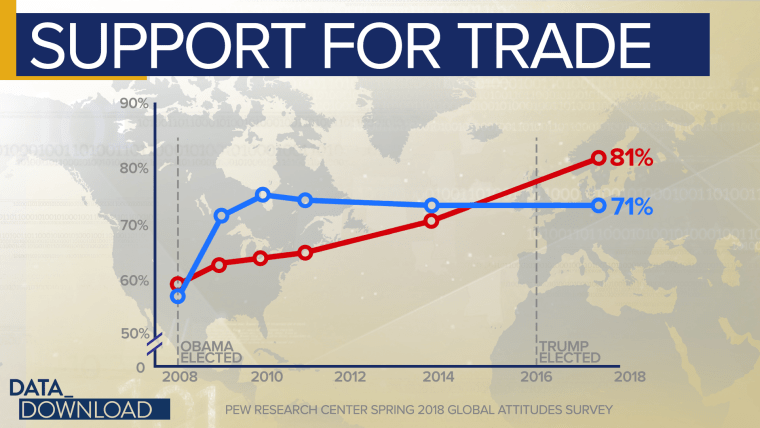
More than 80 percent of Republicans say trade with other countries is good for the United States. That number is lower among Democrats, but only by 10 percentage points. Large majorities of both parties say they are strong believers in trade.
There have been shifts on the issue over the past decade. Back when Barack Obama was president, Democrats felt more positive about trade than Republicans did. The big bump in the GOP number coincides with Trump winning the White House — perhaps suggesting that Republicans more fervently believe in trade now that their dealmaker president is at the helm.
That’s where the divides begin to appear. Trade may be a little five-letter word, but it means different things to different people. People may like it in the abstract, but from there, opinions diverge sharply on how policy around it should be conducted.
Consider the Trump administration’s increases in tariffs and fees. Overall, 53 percent of Americans think they are a bad idea, according to data from Pew, while only 38 percent think they are a good idea. But dive a bit deeper and the well-known 2018 partisan splits become apparent on trade.
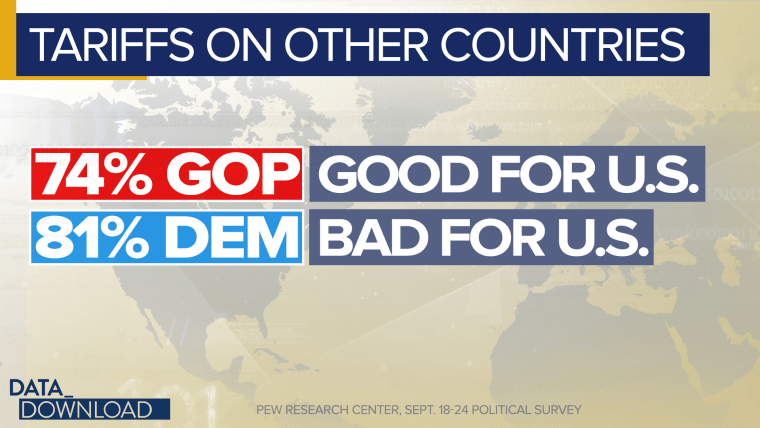
About three-quarters of Republicans say the administration’s recently increased tariffs and fees are good for the United States. On the other side of the spectrum, Democrats are even more strongly opposed. More than 80 percent say those tariffs and fees are bad for the country.
And behind the GOP tariff support is a familiar list of demographic groups that have come to make up Trump’s base: white men, men over 50 and those without a bachelor’s degree.
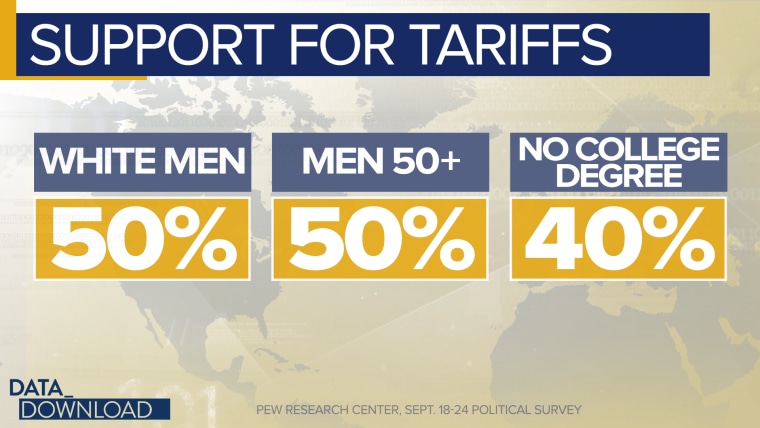
All those groups are above the national average for supporting the tariffs.
Perhaps even more important than those demographic differences, however, are the repercussions the tariffs could have on the electoral map. When you look at support around the country, one region, in particular, lights up.
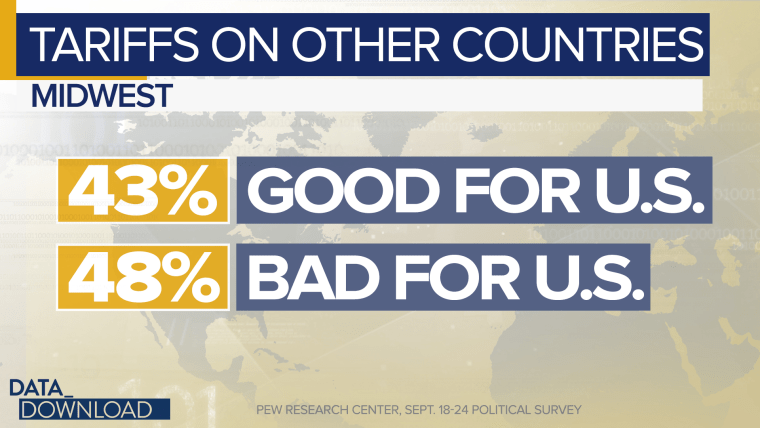
The tariffs are most popular in the Midwestern states. People there are fairly evenly divided on them with 43 percent saying they are good for the country and 48 percent saying they are bad. Keep in mind that the Midwest is still the soul of manufacturing in the country and that it is home to the industrial states that ultimately were crucial to Trump’s 2016 win: Michigan, Ohio, Pennsylvania and Wisconsin.
The point here is even with a large amount of agreement on “trade” there are still big disagreements on trade policy and Trump’s approach to it. And, in a larger sense, these numbers offer yet another sign of how the president seems to be changing the two parties.
The Pew data suggest that the Democrats, the party that once favored protectionist trade policies, have become “free traders.” Meanwhile, Republicans who one cherished the label “free trader” are more interested in tariffs aimed at bringing better deals with foreign countries — what detractors call protectionism.
Go back a few years in American politics and those positions would have been shocking. In 2018, they are simply par for the course.